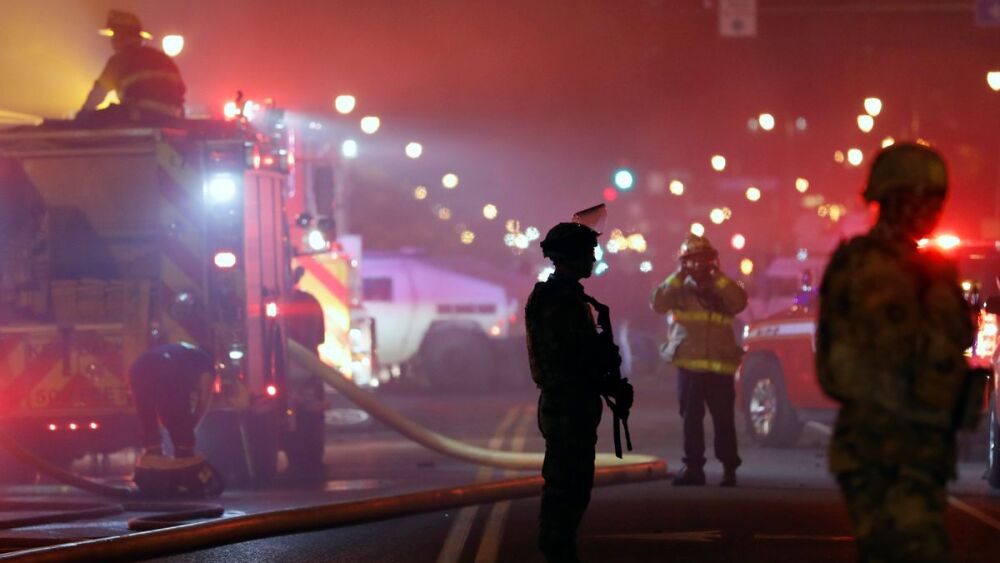Register for the Lexipol webinar, Confronting Racial Inequity in the Fire Service, taking place on March 2, 2021. This webinar will feature a candid discussion about racial inequity, with the bulk of the presentation driven by audience questions. The fire chief presenters will share simple, effective steps attendees can take to start on a path toward racial justice and equity — a path to a better fire service.
By Fire Chief Andrew Seicol
What does it mean to be a volunteer fire chief in 2020? What does it mean to be a leader in 2020?
These are questions I ask myself often, likely too often for my own good.
Here’s another one that I’ve only recently begun to ask myself: How does one call themselves a leader if they are unable to confront the difficult topics head on?
Over the last few weeks, we have seen “leaders” of agencies and organizations all across the world (big and small) address the ever-pressing topic of social injustice, specifically as it applies to people of color, and more specifically, as it applies to interactions between people of color and law enforcement.
As a leader of a small volunteer fire department, what is my obligation to my members, my community and myself to address this issue head on?
As an agency and industry that operates under paramilitary rules and regulations, and often grouped with law enforcement as “first responders,” fire departments and individual firefighters have a unique perspective on law enforcement. We have a front row seat to their operations, they are our friends and allies, but we are often seen differently – we are seen as the kind and well-respected arm of the emergency services.
What if I told you that institutional racism was just as prevalent within the fire service in this nation as it is within law enforcement? That sentence makes me sick to write. It’s taken me a week of watching protests and reading countless articles and social media posts to get there. I’ve tried to pretend this wasn’t the reality, but that doesn’t do anybody any good.
I can say with confidence that my brothers and sisters in the fire service are not discriminating against the people they serve in the performance of their jobs, at least I have no evidence or firsthand knowledge of that existing. Let me be clear: Firefighters are NOT denying rescue operations, fire suppression, life-saving measures or any other critical role they take in society to their community on the basis of someone’s skin color, beliefs, etc. And often this is the statement many departments and individual firefighters will scream from rooftops when they are accused of discriminatory or racially insensitive behavior, to distract from the real question or issue being presented.
But instead, there is this sense of obligation to stand by our brothers and sisters in blue and defend their stance.
So that brings me to my last set of questions: How do we acknowledge that some law enforcement tactics and ideologies are racially insensitive and promote inequality, while also supporting and depending upon individual police officers who also rely upon us in daily life-saving operations? If we as a fire service are unable to acknowledge the shortcomings of society – and more specifically in this context, law enforcement – how can we expect society to adapt, grow and change?
A member of the fire service who insists that the Black Lives Matters (BLM) movement is insensitive and feels the need to reply that all lives matter or blue lives matter is missing the mark and is certainly not working toward the solution, but more likely is part of the problem.
Of course all lives matter, but people of color, black lives are the ones who we are focusing on right now due to centuries of discrimination and the ongoing systemic racism.
A member of the fire service who refers to a protestor as an “animal” simply on the basis of the color of their skin or their fight for equality is a member who is part of the problem.
A friend of mine this week wrote about the distinction between beliefs and inaccuracies. Far too often people hide behind their beliefs to justify an inaccurate stance on an issue. We must acknowledge the presence of systemic racism and the numerous forms it takes in society and, more specifically, the fire service.
We must admit that it exists in our house.
I wish I had answers to all the questions I posed. That would make this an easy problem with an easy solution. Unfortunately, this isn’t, which makes it more critical to talk about and explore the fire service’s role in social equality.
What I’ve learned this week is that organizations and individuals alike must do a better job to listen to those impacted and take ownership of their role in this issue. We must condemn institutional racism and acknowledge our role in its continued existence, regardless of our individual and organizational relationships. This will not solve the issue outright, but I can guarantee that without this step, progress will not occur.
The fire service is plagued internally with the tagline “200 years of tradition, unimpeded by progress.” Well, here is our chance to impact progress for the fire service and society alike.
About the Author
Andrew Seicol is the fire chief of the North White Plains Fire Department in Westchester, New York. He has been a firefighter for nearly 15 years, and chief of department for six years. Seicol holds a master’s degree in public administration with a concentration in emergency management from John Jay College of Criminal Justice.
This article was prepared by Andrew Seicol in his personal capacity. The opinions reflected are the author’s own and do not reflect the views of any agency affiliation with this author.


